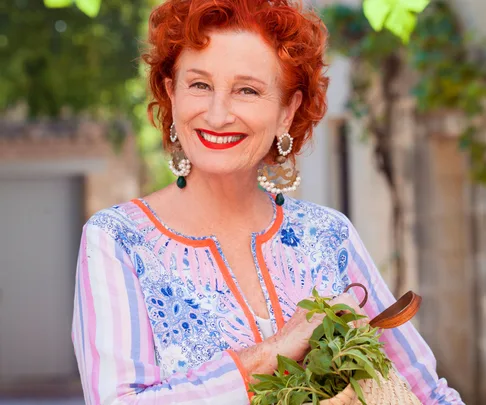Chances are, if you find yourself in the small town of Uzès, Languedoc, in the south of France, you’ll fall truly, madly and deeply in love.
If you’re not entranced by its impressive history, which dates back to medieval times, then you’ll love its bohemian spirit, lush countryside and mouth-watering fresh local produce. Peta Mathias fell in love with all of this 12 years ago when visiting a friend – and she’s been there on and off ever since.
The New Zealand-born author, cook, agony aunt and self-styled “gastronomad” loves her adopted home town – and France – so much that, she muses, although she wasn’t born in the wrong body, she was definitely born in the wrong place.
“When I first moved to Paris, in 1979, I wrote a long letter to my parents, saying, ‘I was born in the wrong country.’
“My mother wrote back and said, ‘Oh, you are so dramatic!’” she grins, looking out of the green shutters of her rented town house into the blazing hot afternoon sun. “Then she visited me and she said, ‘You were quite right. I can see why you said that now.’”
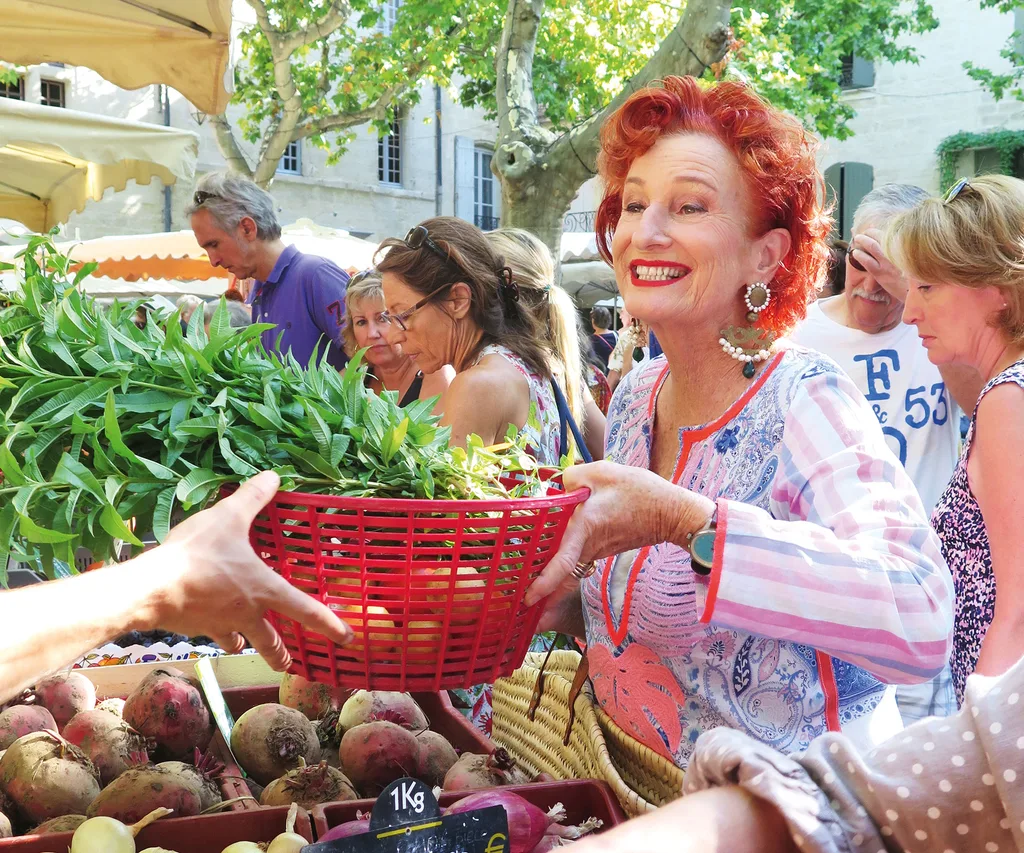
“When I first moved to Paris in 1979, I wrote a long letter to my parents saying, ‘I was born in the wrong country!'”
Fast forward more than three decades and she means it more than ever. Peta is now in the process of building a house there, complete with an impressive industrial kitchen, where she plans on teaching visitors to cook the local Languedoc classics.
Uzès is Peta’s refuge – her sanctuary. She writes, cooks, eats, dances and laughs away three or four months of the year here. Among the famous “Uzès green” (sage green) doors, the biscuit-coloured walls and cobbled streets, and near the iconic Uzès Cathedral, which is home to a duke, Peta hits the markets on Wednesdays and Saturdays buying whatever is in season. The bustling market square is crammed to the hilt with eggs, cheeses, sausages, honey, jams, bread, vegetables, tapenades and all things consumable and tasty.
Cats, dogs and old men mingle with chic, pram-wielding mamas. There is amazing-looking cheesy bread, beef tomatoes the size of your head and olive oil in every form.
And in the middle of it all is Peta. You’d be hard-pressed to miss her, with her trademark bright shock of red hair and psychedelic Eastern tunic she wears. With her today are two of her favourite stallholders – Sister Ambrosia and Annie the cheese lady, a plump, beaming woman.
“Annie gives the best hugs in Uzès,” smiles Peta. “I taught her to say ‘Have a nice day.’
“Eve a nice deh. She say zis everytime she see somewern,” Peta laughs as she adopts a comedic French accent.
“She’s fabulous!”
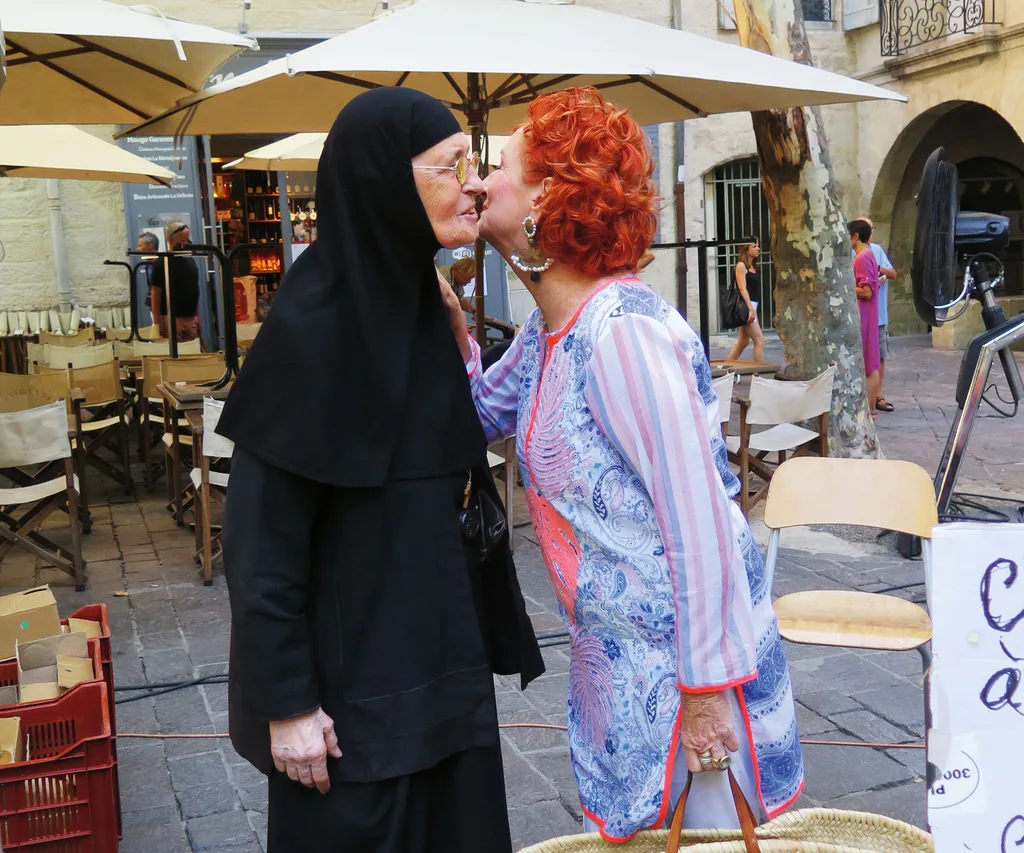
Sister Ambrosia is one of Peta’s favourite stallholders in the market and now a good friend.
Meanwhile, quiet and unassuming in her habit, Sister Ambrosia is world famous in New Zealand, like Annie, after featuring on Peta’s TV show, Culinary Adventures in the South of France. “People recognise her and come up to her a lot,” says Peta proudly, as Sister Ambrosia diligently tends to her stall, which is laden with home-made wine and an array of fruit jams made at her monastery.
Our final stop in the Uzès market tour is to drop by the handsome fish seller – “but God, does he know it”, laughs Peta. Men are one of Peta’s favourite topics – whether it’s gossiping about them with girlfriends in local cafés, which she does frequently, or writing about them, as in her 2009 book Just in Time to Be Too Late.
She admits that just because she’s been around the block, doesn’t mean she knows it all. She’s been in love many times with men she didn’t marry.
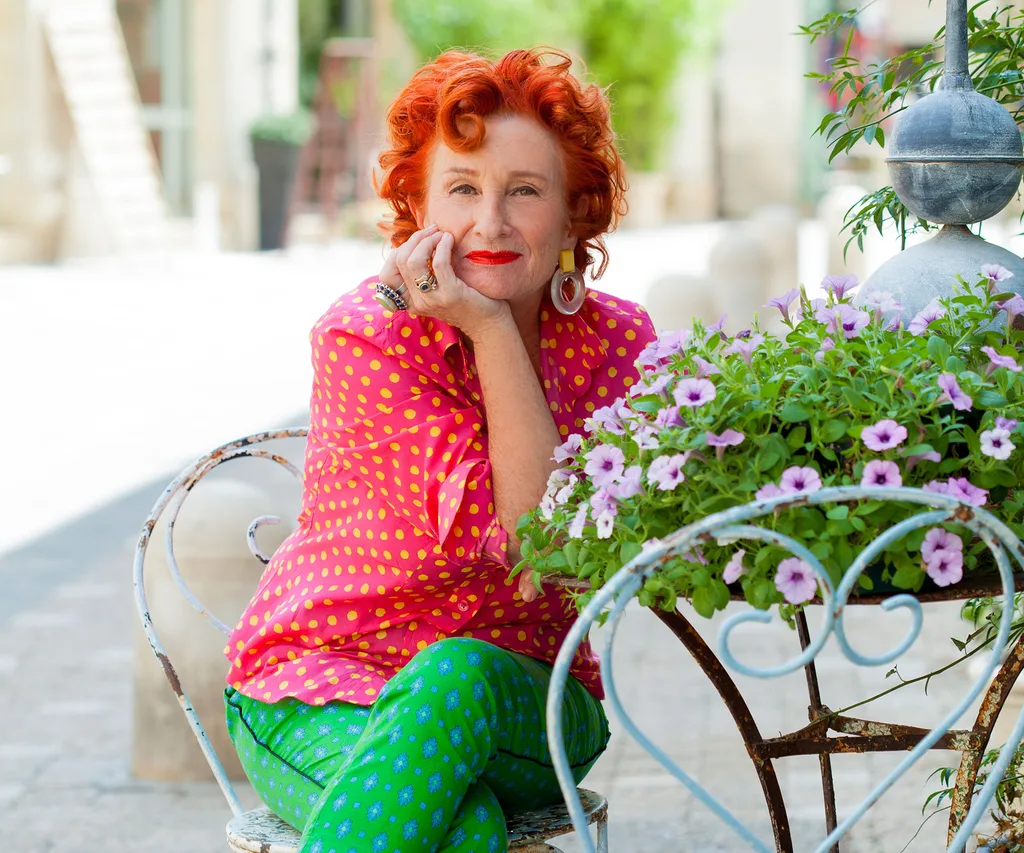
Peta loves to drop into the gorgeous Uzès Cathedral when she visits the market.
The only man who she did wed, Alexis, was gay. Peta only married him to get French residency, which she confesses sheepishly, has now lapsed. Tragically, Alexis died of Aids a few years later, when the disease was at its peak in the ‘80s.
“It was terribly sad,” she recalls. “I spoke to his brother after he had died. He had gone through all of Alexis’ things.
And he had found this poem – a love poem to a red-haired woman. It was basically saying that he wished he could have been in love with me.”
Now at 65, she says that she’s given up the chase – even though her last lover was 35.
“It’s an awful thing to say… ” she muses, “but I really don’t find middle-aged men attractive. I’m immature, but it doesn’t stop me from ageing.
“I reached my midlife crisis at 27 – I realised I was no longer young. I’ve had a bikini wax a few times and it felt fabulous, but I can’t be bothered any more.”
Botox, as she has confessed before, is her one guilty pleasure. “It puts your eyebrows where God intended them to be and not where nature has mistakenly left them.
“But I don’t really care about ageing,” she adds. “I’ve earned these lines – every one of them. And they’re not from stress, they’re from laughing!”
Warming to the topic, Peta is on a roll. “If an attractive man sat next to me on the plane, I wouldn’t even notice. I don’t look at people, I don’t talk to people… I’m kind of what psychiatrists call a sociable loner.
“I’ve had a lot of boyfriends, I’ve had a husband… and other people’s husbands,” she winks. “I’m so busy with other things, I just get on with my life.
“Maybe I should become a lesbian,” she sighs. “I wish I could! I’m sure it would be easier – I’d have loads of lovers. But I’m perversely heterosexual.”
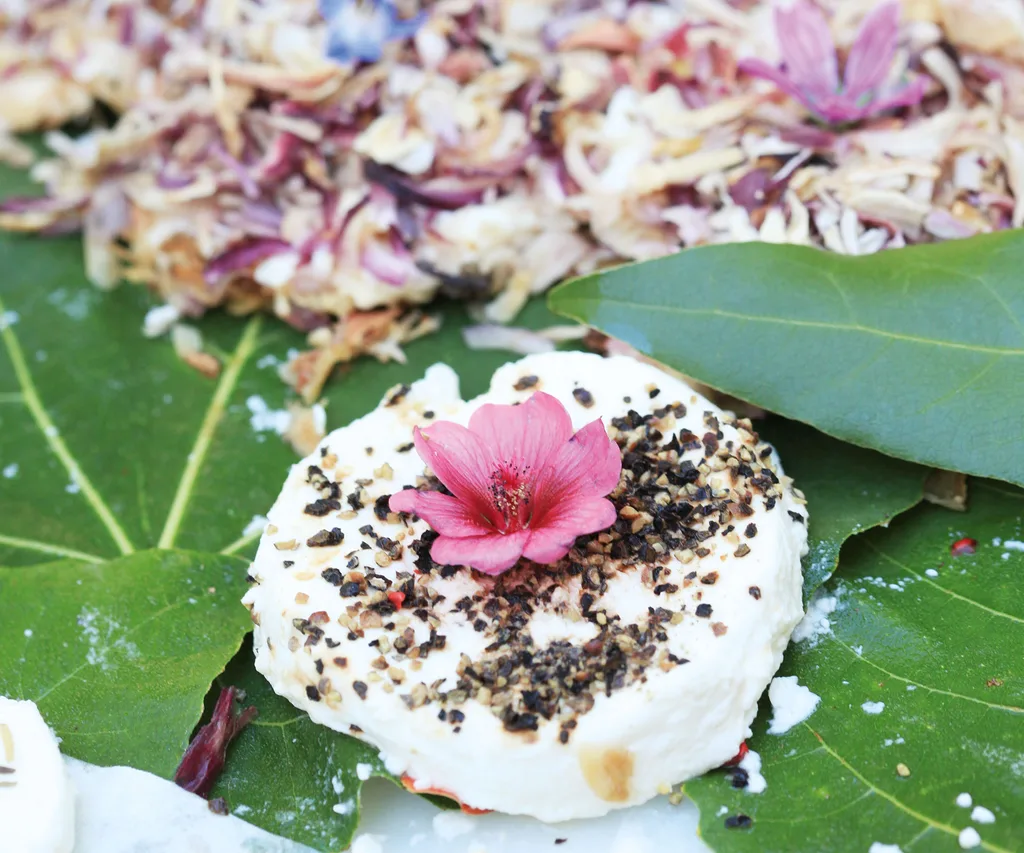
Shopping at the market is a must every Wednesday and Saturday, where Peta can purchase all her wares fresh, from food to flowers.
Mostly Peta prefers to gawp at male perfection from afar – whether it’s the handsome fish seller or the toreador from a recent bullfight. She’s showing pictures of him on her camera screen during lunch at Bettino, one of her favourite restaurants.
“Isn’t he divine?” she smiles. “Exquisite.” Bullfighting – or watching it, at least – is one of her passions and a firm cultural divider among her friends.
“It’s so sexy and exciting,” she grins. “The New Zealanders and English are horrified by it. None of them will come.”
Her friends in Uzès are a mix of expats and French, including artists, winemakers, writers and architects. It was Gina, a straight-talking Swiss-Italian architect who lives round the corner, who introduced her to the controversial, bloodthirsty sport about 10 years ago.
“The first time I went to a bullfight, I just hated it! I thought it was the most dreadful thing I’d seen in my life,” she admits. “I cried throughout the whole thing. Gina is a huge animal lover, but she explained to me how violent, vicious and strong and fast the bull is. The only reason the toreador wins is because he has a better brain and can outsmart the bull. People say it’s really unfair but you’ve got to remember how dangerous this animal is – and that it’s had a great life until the moment it’s sent to the arena.”
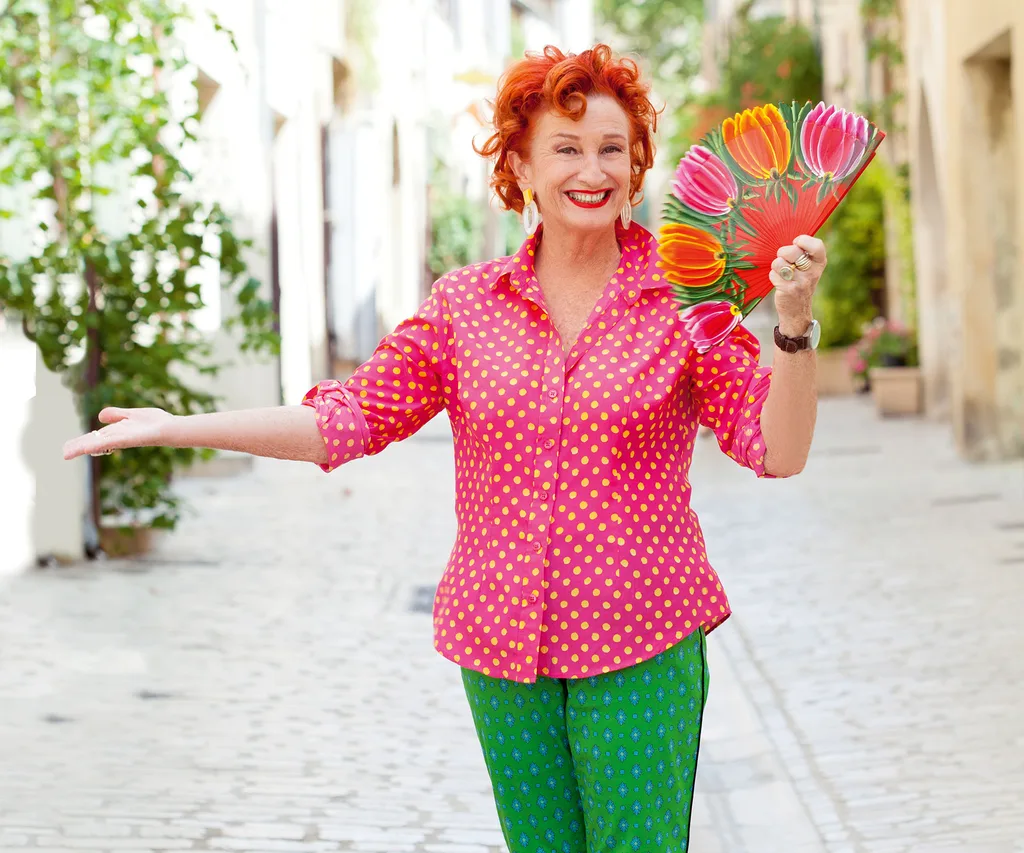
Peta is in her element standing in the cobbled streets of her second home, Uzès.
She laughs, “It’s terrible! I can’t talk about it without sounding terrible, but I love it – and I don’t know why I love it. You get all that great Spanish music and carry on and oom-pah-pah. It’s like a ballet. It’s choreographed, it’s a dance. There’s a lot of religion and superstition – stuff that goes on around it.
“You have to be incredibly skilled to be a toreador – it’s a beautiful thing to watch if you understand the moves and what the bullfighter is trying to achieve.”
On an average day in Uzès, Peta will get up and have a cup of tea – her favourites are Darjeeling or Lapsang souchong. Later, she’ll have a coffee, but nothing to eat until lunchtime, when she’ll whip up “something simple – a baguette with some cured ham and local Pélardon goat cheese”.
She also scouts out foreign locations for cooking tours – with India, Morocco, Vietnam and Italy all getting the seal of approval for what she terms “week-long dinner parties”.
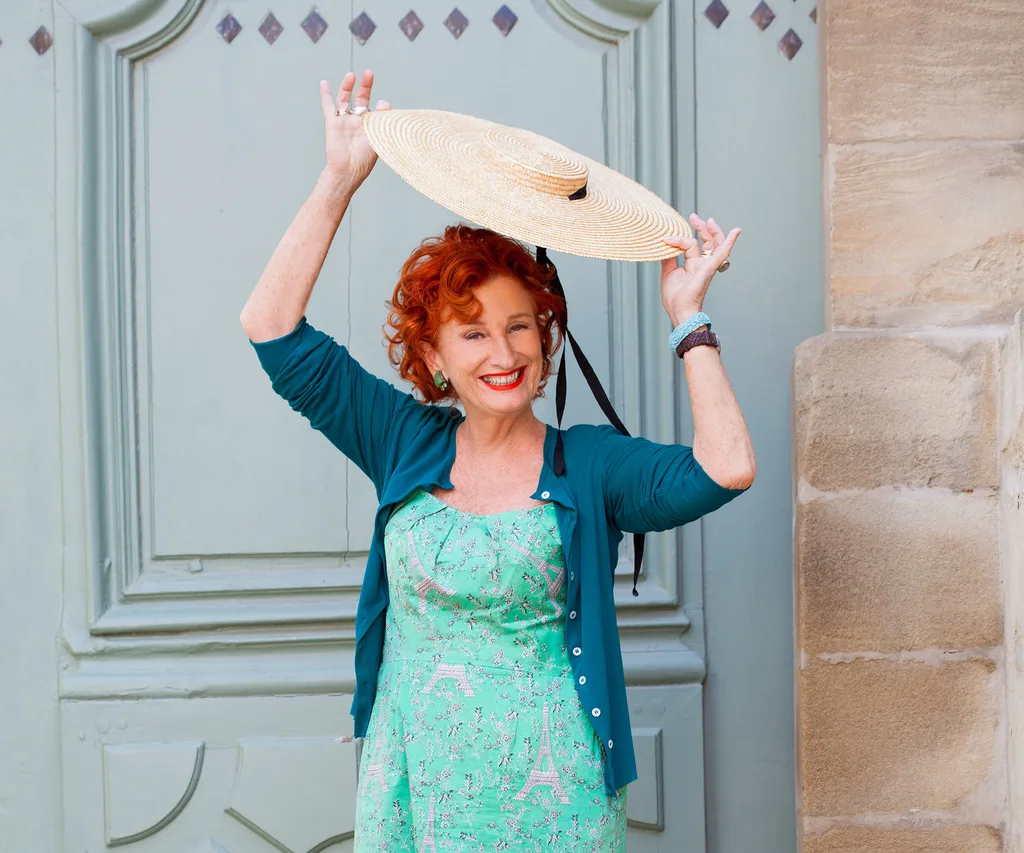
Peta poses in front of one of Uzès’ famous green doors.
But as the European winter descends, she’ll come back to New Zealand – she rents a house in Auckland for six months of the year. “It’s like coming back to paradise,” she enthuses.
“It’s the most beautiful country in the world. I like that everything works, and that it’s safe and honest, because it ain’t like that in Europe.”
As well as work, it’s a chance to catch up with her Sydney-based parents and five younger siblings, who all live in New Zealand and Australia. “They are nothing like me! We all do completely different things, but we get together for big occasions. We get along well and enjoy each other’s company.”
She admits that her family, particularly one of her sisters, is baffled by her childless, nomadic existence. “She thinks I’ve got the most unenviable life imaginable. She would rather die than be me!” she laughs. “I believe in living completely in the present – I hardly ever talk about the past or the future and I don’t even have a retirement plan.
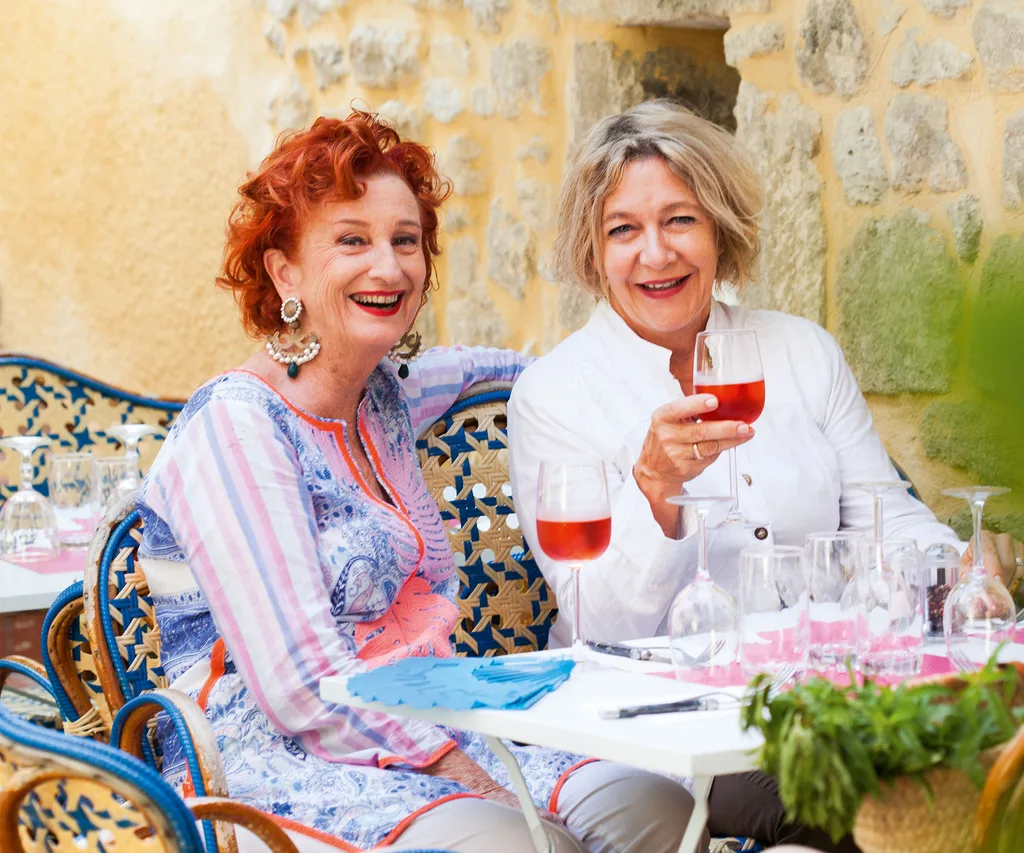
Bonding over bullfights! Peta and her neighbour Gina enjoying a glass of wine and a gossip.
“It’s hard to believe that we were all brought up by the same two people because we are so different. And we wouldn’t be friends if we weren’t related. But we are all interested in each other. There are no big fallings out. So far… ”
The closest they got to a family row was when Peta got a tattoo at the age of 60 – a rose on her shoulder with La Vie En Rose – one of the most famous songs from her idol Edith Piaf.
“I was writing about tattoos for a chapter in my book Beat Till Stiff and became so fascinated that I decided I would have to get one. My siblings were horrified!
“It hurt like hell. I screamed and cried through the whole thing. I’d brought my friend along. And then we had a stiff drink to recover.”
When she finally confessed it to her mother, the 90-something had a surprise of her own. “She said, ‘There’s something I have to tell you…’ That [her] beautiful blue beauty spot was actually a tattoo she’d had done when she was in the Australian Navy when she was about 18! Not even my father knew.” Peta is interrupted by the mouth-watering smell of osso bucco – the restaurant’s signature veal dish. “It’s the best thing here, though the rabbit is a close second.”
Then it’s quickly back to the wine, the sun and the laughter.
“Even though I stick out like a sore thumb here, what I love is that I can have a private life. But now, lots of New Zealanders are moving here. Everyone’s falling in love with it. I screwed it up!” she grins. “But it’s not a bad thing in life to screw up.”
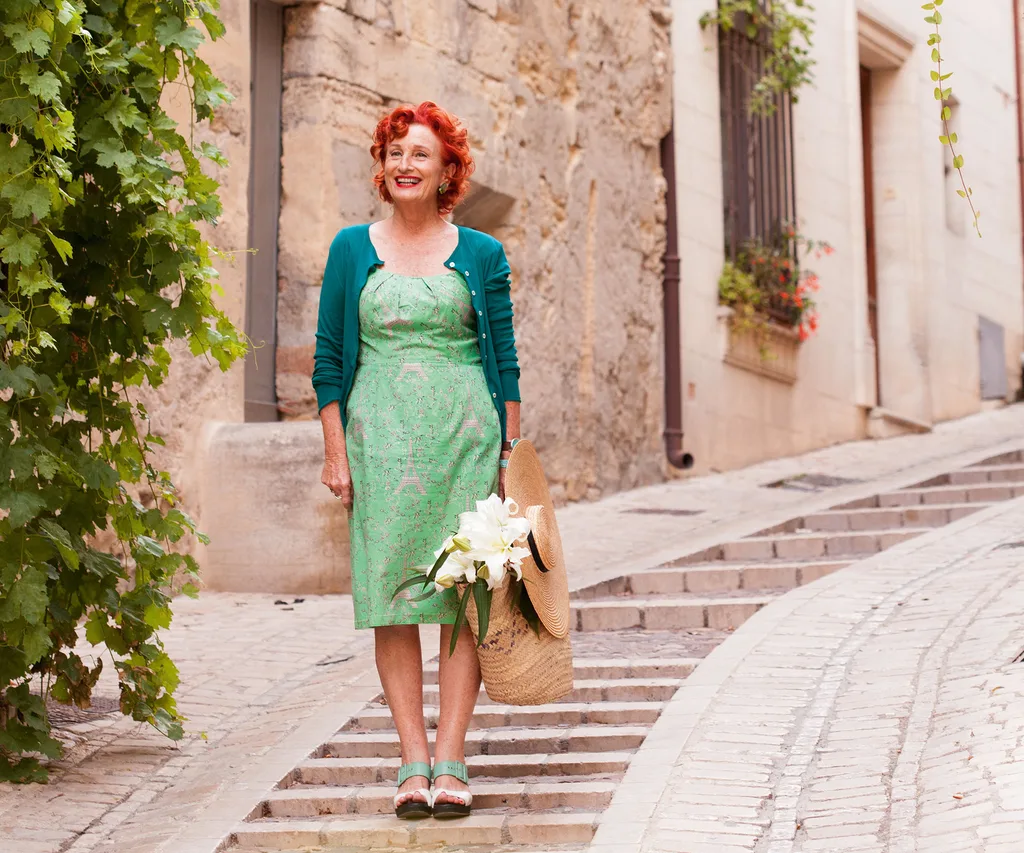
Peta’s top five things to do in Uzès
Enjoy an open-air concert.
Stroll around at dusk. You never know what you might find – a horse and carriage, a Spanish guitarist in a quiet street, perhaps children playing hopscotch.
Visit the cathedral and the market in the town on a Wednesday or Saturday.
Dine al fresco at my favourite restaurants – Le Terroir and Bettino.
My cooking classes!
Words by: Carmen Lichi
